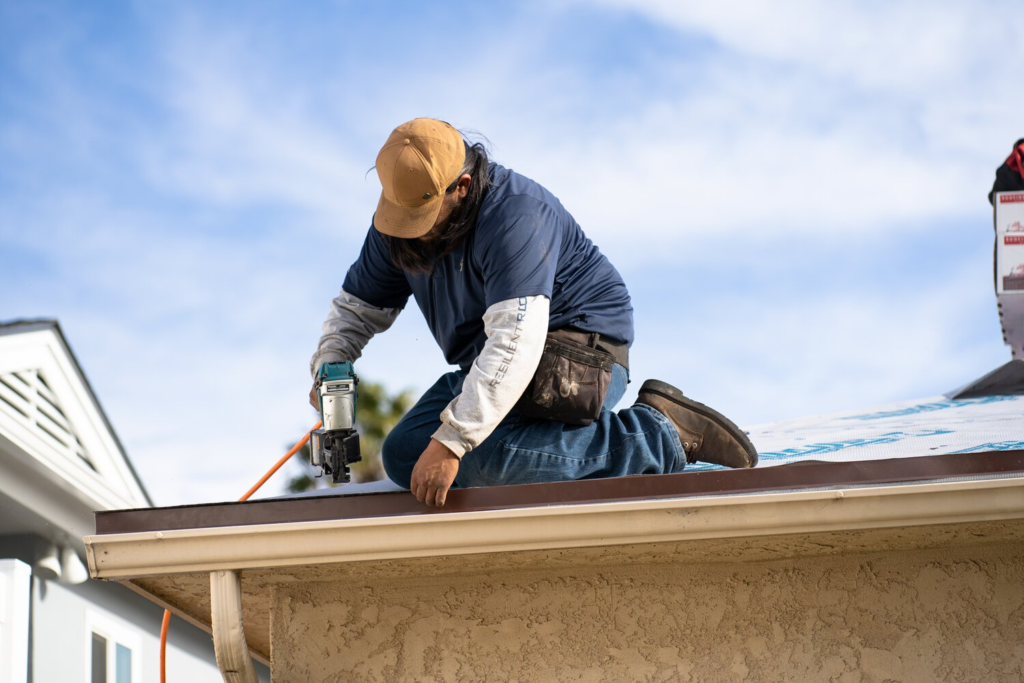Essential Qualities of a Reliable Residential Roofing Contractor

Choosing a reliable residential roofing contractor is crucial for ensuring the long-term durability and safety of your home’s roof. A well-installed and maintained roof not only enhances the aesthetic appeal of your property but also protects it from environmental elements. To make an informed decision, it’s essential to understand the key qualities that define a dependable roofing contractor. This article outlines these qualities to help you select the best professional for your roofing needs.
1. Experience and Expertise
One of the primary factors to consider when selecting a residential roofing contractor is their experience and expertise in the field. An experienced contractor brings a wealth of knowledge about various roofing materials, installation techniques, and problem-solving strategies. They should have a proven track record of successfully completing similar projects. An established contractor will have a portfolio of completed work and client testimonials that reflect their proficiency and reliability.
2. Proper Licensing and Insurance
A reputable residential roofing contractor should hold the necessary licenses and certifications required by local and state regulations. Licensing ensures that the contractor meets the industry’s standards and adheres to safety protocols. Additionally, adequate insurance coverage is essential to protect you from liability in case of accidents or damages during the roofing project. Verify that the contractor carries both general liability insurance and workers’ compensation insurance to safeguard your property and the workers.
3. Detailed Written Estimates
A reliable contractor should provide a detailed written estimate outlining the scope of work, materials to be used, labor costs, and any additional expenses. This transparency helps avoid unexpected costs and ensures that you have a clear understanding of what to expect. The estimate should be comprehensive and include specifics about the roofing materials, project timeline, and payment terms. Avoid contractors who offer vague estimates or who are unwilling to provide a written contract.
4. Strong Reputation and References
Researching a contractor’s reputation is essential for gauging their reliability and quality of work. Look for online reviews, ratings, and feedback from previous clients. A contractor with a strong reputation will often have positive reviews and a solid history of satisfied customers. Additionally, ask the contractor for references from past projects. Contact these references to inquire about their experience with the contractor, including the quality of workmanship, adherence to deadlines, and overall satisfaction.
5. Good Communication Skills
Effective communication is a hallmark of a reliable residential roofing contractor. The contractor should be responsive to your inquiries, provide clear explanations about the roofing process, and keep you informed throughout the project. A contractor who communicates well is more likely to address any concerns promptly and ensure that the project runs smoothly. Clear communication also helps prevent misunderstandings and ensures that your expectations are met.
6. Warranty and Aftercare
A reputable residential roofing contractor should offer a warranty for both the materials used and the workmanship. A warranty provides peace of mind, knowing that the contractor stands behind their work and is committed to addressing any issues that may arise after the installation. Review the terms of the warranty carefully to understand the coverage and duration. Additionally, inquire about the contractor’s aftercare services, such as maintenance and repair options, to ensure ongoing support for your roofing system.
7. Commitment to Safety
Safety should be a top priority for any residential roofing contractor. The contractor should adhere to industry safety standards and implement appropriate measures to protect both their workers and your property. This includes using proper safety equipment, following safe work practices, and ensuring that the worksite is secure. A contractor committed to safety demonstrates professionalism and reduces the risk of accidents and damage during the roofing project.
8. Transparent Contract and Payment Terms
A reliable contractor will provide a detailed and transparent contract outlining all aspects of the project, including scope, timeline, materials, and payment terms. The contract should also include provisions for handling unexpected issues or changes in the project scope. Clear payment terms, including deposit requirements and final payment conditions, should be outlined to prevent any financial disputes. Ensure that you fully understand the contract before signing and keep a copy for your records.
Conclusion
Selecting the right residential roofing contractor is a critical decision that impacts the longevity and performance of your roof. By considering the essential qualities outlined above—experience, licensing, detailed estimates, reputation, communication, warranty, safety, and transparent contracts—you can make an informed choice and ensure that your roofing project is completed to the highest standards. A reliable residential roofing contractor will not only provide a high-quality installation but also deliver peace of mind and lasting protection for your home.





